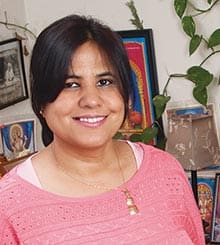The Award
- Recognizes outstanding achievement, often at great personal risk.
- Enhances the recipient’s ability to live and work freely, and protects the recipient’s capacity to continue her work, by bringing a new level of international attention to her accomplishments and the obstacles she faces.
- Brings increased international scrutiny to the crisis, region or issue for which the recipient works.
The Ginetta Sagan Award emphasizes that more human rights work must be done by and for women. The annual award grant of $20,000 is given in recognition of individual accomplishment but also in the belief that it will serve as a beacon of hope to women everywhere who are fighting for human rights. The Award is intended to help women throughout the world in their struggle to overcome oppression, to let them know that they are not alone.
About Ginetta
“Ginetta Sagan’s name is synonymous with the fight for human rights around the world. She represents to all the triumph of the human spirit over tyranny.” –Bill Clinton
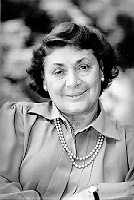 Ginetta Sagan, former honorary Chair of the Board of Directors of Amnesty International USA, devoted her life to defending the rights of those who were unfairly persecuted by repressive governments. Ginetta was born it Italy and was active in the anti-fascist Italian resistance movement during WWII. She was captured and tortured in 1945, but escaped on the eve of her execution. She later moved to the United States, where she founded 75 Amnesty International chapters around the country. As an advocate of human rights, she traveled widely, often to countries where her life was endangered. She researched and wrote meticulous reports about the abuses that she observed, serving as a witness and public voice of the oppressed. She inspired countless others to follow in her footsteps. As an activist and educator, she was instrumental in saving the lives of hundreds of prisoners of conscience. Ginetta’s commitment to human rights serves as her legacy to future generations.
Ginetta Sagan, former honorary Chair of the Board of Directors of Amnesty International USA, devoted her life to defending the rights of those who were unfairly persecuted by repressive governments. Ginetta was born it Italy and was active in the anti-fascist Italian resistance movement during WWII. She was captured and tortured in 1945, but escaped on the eve of her execution. She later moved to the United States, where she founded 75 Amnesty International chapters around the country. As an advocate of human rights, she traveled widely, often to countries where her life was endangered. She researched and wrote meticulous reports about the abuses that she observed, serving as a witness and public voice of the oppressed. She inspired countless others to follow in her footsteps. As an activist and educator, she was instrumental in saving the lives of hundreds of prisoners of conscience. Ginetta’s commitment to human rights serves as her legacy to future generations.
Call For Nominations
Nominations for 2024 award winner will open in June of 2024. Please check back on this page then.
Contact: for questions about the Ginetta Sagan Fund or Award, please email [email protected].
Silence in the face of injustice is complicity with the oppressor.
2023 Award Winners
2023 – Justyna Wydrzyńska, Poland
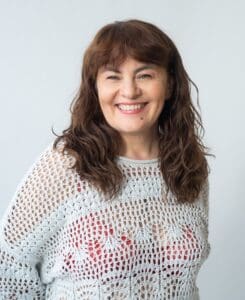 Justyna Wydrzyńska is a human rights defender and doula. She co-founded the Abortion Dream Team, an activist collective campaigning against abortion stigma and offering advice on accessing safe abortion in Poland, where abortion laws are among the most restrictive in Europe. In March 2023, Justyna was convicted for helping a woman in an abusive relationship access a safe abortion. Demonstrating her courage despite the hostility she faces, Justyna says: “I was driven by the will to help when no one else wanted to or could help. For me, helping [her] was an obvious, decent, and honest thing to do.” Despite the threats to her, including her conviction, Justyna continues to fight for women and people who can get pregnant in Poland to be able to make informed decisions about their reproductive lives.
Justyna Wydrzyńska is a human rights defender and doula. She co-founded the Abortion Dream Team, an activist collective campaigning against abortion stigma and offering advice on accessing safe abortion in Poland, where abortion laws are among the most restrictive in Europe. In March 2023, Justyna was convicted for helping a woman in an abusive relationship access a safe abortion. Demonstrating her courage despite the hostility she faces, Justyna says: “I was driven by the will to help when no one else wanted to or could help. For me, helping [her] was an obvious, decent, and honest thing to do.” Despite the threats to her, including her conviction, Justyna continues to fight for women and people who can get pregnant in Poland to be able to make informed decisions about their reproductive lives.
2023 – Juwairiya Mohideen, Sri Lanka
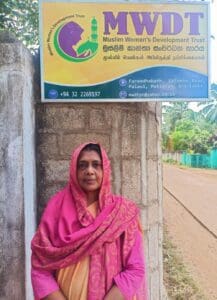 Hailing from the village of Erukkalampiddy, Juwairiya Mohideen was compelled to leave her home in 1990 during the expulsion of Muslims in Northern Sri Lanka, and relocated to Puttalam in the Northwestern region as an internally displaced person. Despite numerous challenges, Juwairiya became an activist, founding the Muslim Women’s Development Trust and joining the Women’s Action Network, which advocates for women’s and marginalized individuals’ rights. For over three decades, Juwairiya has been a determined advocate against gender-based violence, addressing discriminatory practices in Muslim marriage law. Her efforts also focus on fostering reconciliation between Muslim and Tamil communities, contributing significantly to social change.
Hailing from the village of Erukkalampiddy, Juwairiya Mohideen was compelled to leave her home in 1990 during the expulsion of Muslims in Northern Sri Lanka, and relocated to Puttalam in the Northwestern region as an internally displaced person. Despite numerous challenges, Juwairiya became an activist, founding the Muslim Women’s Development Trust and joining the Women’s Action Network, which advocates for women’s and marginalized individuals’ rights. For over three decades, Juwairiya has been a determined advocate against gender-based violence, addressing discriminatory practices in Muslim marriage law. Her efforts also focus on fostering reconciliation between Muslim and Tamil communities, contributing significantly to social change.
Previous Award Winners
2022 – Bai Bibyaon Ligkayan Bigkay, Philippines
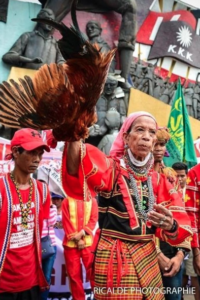 Bai Bibyaon Ligkayan Bigkay has been protecting her people and defending the environment from extractive industries since the 1980s as an Indigenous activist and the first woman chieftan of the Manobo tribe in Mindanao. She co-founded Sabokahan Unity of Lumad Women, a grassroots women’s organization that empowers women, youth and LGBT Lumad in the struggle for self-determination and defense of ancestral lands through capacity-building, education, and services. She has endured threats, harassment, and intimidation under military occupation, and has experienced chronic forced displacement, yet she has continued to push forward the struggle for Indigenous and women’s rights.
Bai Bibyaon Ligkayan Bigkay has been protecting her people and defending the environment from extractive industries since the 1980s as an Indigenous activist and the first woman chieftan of the Manobo tribe in Mindanao. She co-founded Sabokahan Unity of Lumad Women, a grassroots women’s organization that empowers women, youth and LGBT Lumad in the struggle for self-determination and defense of ancestral lands through capacity-building, education, and services. She has endured threats, harassment, and intimidation under military occupation, and has experienced chronic forced displacement, yet she has continued to push forward the struggle for Indigenous and women’s rights.
2022 – Suha Tutunji, Lebanon
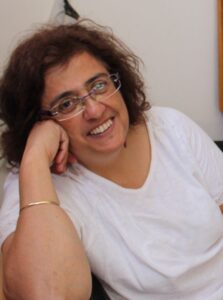 Suha Tutunji is a passionate advocate for access to education and a role model for educators in her home country of Lebanon and all contexts of armed conflict and forced displacement. Since 2013, Suha has led the Refugee Education Program for Jusoor, an international non-governmental organization with the mission of maximizing the potential of Syrian youth through education, working to ensure that children are not only in school but also learning concrete, practical skills that help ensure a brighter future. In an environment where there are many barriers toward access to refugee children’s learning, Suha has reimagined education, leading a powerful movement in her home country and region.
Suha Tutunji is a passionate advocate for access to education and a role model for educators in her home country of Lebanon and all contexts of armed conflict and forced displacement. Since 2013, Suha has led the Refugee Education Program for Jusoor, an international non-governmental organization with the mission of maximizing the potential of Syrian youth through education, working to ensure that children are not only in school but also learning concrete, practical skills that help ensure a brighter future. In an environment where there are many barriers toward access to refugee children’s learning, Suha has reimagined education, leading a powerful movement in her home country and region.
2021 – Riya Williams Yuyada, South Sudan
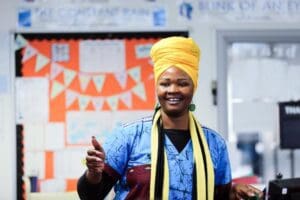 Riya William Yuyada is a South Sudanese women’s human rights and peace activist who works teaching peace building in schools and communities. She founded Crown The Woman-South Sudan, a national grassroots feminist organization that works to foster a future with zero tolerance for inequality, inequity, and injustice. Riya is also co-founder of Play for Peace South Sudan, which provides technical support to the South Sudan High Level Revitalization(HLRF) forum peace talks, a peace initiative in South Sudan. Across multiple campaigns and initiatives, Riya has advocated for women’s empowerment and peace-building initiatives through a feminist lens.
Riya William Yuyada is a South Sudanese women’s human rights and peace activist who works teaching peace building in schools and communities. She founded Crown The Woman-South Sudan, a national grassroots feminist organization that works to foster a future with zero tolerance for inequality, inequity, and injustice. Riya is also co-founder of Play for Peace South Sudan, which provides technical support to the South Sudan High Level Revitalization(HLRF) forum peace talks, a peace initiative in South Sudan. Across multiple campaigns and initiatives, Riya has advocated for women’s empowerment and peace-building initiatives through a feminist lens.
2021 – Naw K’nyaw Paw, Myanmar/Thailand
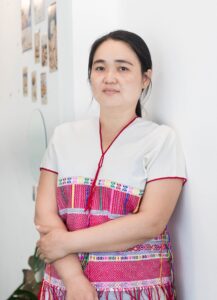 Naw K’nyaw Paw is a dedicated activist working for gender justice, social justice, human rights, democracy, child protection and community ownership. She was born on the Thai-Burma border and became a refugee at the age of 11, and she is now the General Secretary of the Karen Women’s Organization, a feminist, indigenous rights, community-based organization that plays a leadership role in the struggle to bring democracy and human rights to Burma/Myanmar. Her work forces on capacity building, increasing and amplifying women’s voices and influence, as well as providing services to women and children.
Naw K’nyaw Paw is a dedicated activist working for gender justice, social justice, human rights, democracy, child protection and community ownership. She was born on the Thai-Burma border and became a refugee at the age of 11, and she is now the General Secretary of the Karen Women’s Organization, a feminist, indigenous rights, community-based organization that plays a leadership role in the struggle to bring democracy and human rights to Burma/Myanmar. Her work forces on capacity building, increasing and amplifying women’s voices and influence, as well as providing services to women and children.
2021 – Norma Andrade, Mexico
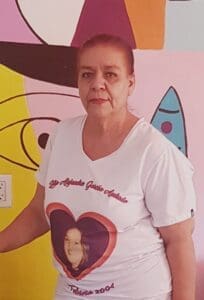 Norma Andrade is the co-founder and president of Nuestras Hijas de Regreso, one of the pioneering organizations organizing familiars of murdered and missing girls and women in Ciudad Juarez. Since 2001 after kidnap, torture, and assassination of her daughter Lilia Alejandra Garcia Andrade, Norma has worked for justice and visibility of gender-based crimes against women. She currently advises relatives of victims of disappeared and murdered girls and has participated in various national and international fora to advocate.
Norma Andrade is the co-founder and president of Nuestras Hijas de Regreso, one of the pioneering organizations organizing familiars of murdered and missing girls and women in Ciudad Juarez. Since 2001 after kidnap, torture, and assassination of her daughter Lilia Alejandra Garcia Andrade, Norma has worked for justice and visibility of gender-based crimes against women. She currently advises relatives of victims of disappeared and murdered girls and has participated in various national and international fora to advocate.
2019 – Victoria Nyanjura, Uganda
Victoria Nyanjura is a champion for the rights and dignity of women survivors of conflict. She was abducted by the Lord’s Resistance Army when she was 14 years old and spent eight years in captivity. After escaping, she founded Women in Action for Women (WAW), a Ugandan organization that improves the life of women and youth through vocational training, business skills enhancement, and support from community governance structures. She also played a significant role in organizing a petition for redress that resulted in the parliament of Uganda unanimously passing a resolution to remedy the plight of victims of Northern Uganda’s conflicts. She is a recipient of the International Navarra Solidarity Peace Prize and Thomas D McCloskey Peace Fellowship.
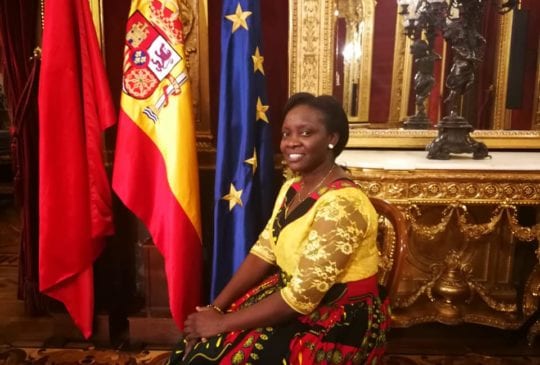
2019 – Malika Abubakarova, Russia
Malika Abubakarova is a lawyer from Chechnya who founded the NGO “Women’s Rights” in Grozny, one of few NGOs in all of Russia to focus on the legal protection of women and children. As repression and discrimination against women has steadily increased in her region, Malika has helped hundreds of women assert their rights in court. In addition to winning over 40 cases domestically, Malika also filed the first case on domestic violence from Russia to the United Nations CEDAW Committee and also litigates cases on gender-based violence, sexual violence and discrimination at the European Court of Human Rights, winning four cases in 2018-2019. Malika also runs educational and empowerment programs for adolescent girls, discussing issues such as domestic violence, the dangers of early marriages, the importance of learning, self-development, and education.
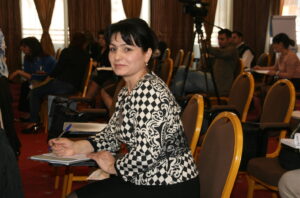
2018 – Dorothy Njemanze, Nigeria
Dorothy Njemanze, co-founder and executive director of the Dorothy Njemanze Foundation, is a filmmaker, actress, public speaker, and investigative journalist based in Abuja who works to expose widespread abduction and sexual violence against women and girls in Nigeria. She has been arrested and detained and suffered violence and intimidation for her work as a human rights defender. She was one of four plaintiffs in a landmark case brought against Nigeria, in which the government was found guilty of gender-based violence. Through her foundation, she helps victims of violence access legal services, medical care, social services, education, and increased economic empowerment. The Foundation also creates audiovisual materials in regional dialects to promote human rights awareness at the grassroots.

2017 – Charon Asetoyer, Comanche Nation
Charon Asetoyer is the Executive Director and founder of the Native American Community Board and the Native American Women’s Health Education Resource Center, located on the Yankton Sioux Reservation, South Dakota. Asetoyer’s activism is focused at the intersection of reproductive justice, environmental justice, and Native American rights. She has been an undeniable force in improving her community’s health and well-being through providing resources like health information, referral services, a domestic violence shelter, and transitional housing. In addition, her community-based research has influenced policies and practices at the local and federal level. She was appointed to the National Advisory Council for Health and Human Services by President Clinton and has also served on the National Environmental Justice Advisory Committee of the EPA
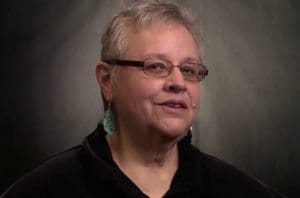
2016 – Julienne Lusenge, Democratic Republic of Congo
Julienne Lusenge, Director and founder of Le Fonds des Femme Congolaises (FFC- Congolese Women’s Fund), is one of the most respected advocates for women and girls in eastern DRC. After violent conflict usurped the region, Julienne, a radio-journalist, began documenting horrific sexual abuse and children’s rights violations at the hands of warring parties. By 2001, Julienne co-founded an NGO (SOFEPADI), working round-the-clock to support survivors of sexual violence; get the Congolese government and the UN to acknowledge that rape was being used a weapon of war; and convince government and the UN to take action to protect women and girls in eastern DRC. In 2007, she launched FFC, which works to strengthen local Congolese women’s groups working to ensure women’s rights to physical integrity, economic justice and participation in decision-making spaces.
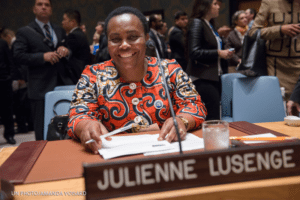
2015 – Amal Khalifa Habbani, Sudan
Journalist and activist Amal Khalifa Habbani has promoted equality and justice for women in Sudan throughout her carrer. She has been beaten, fined, arrested, and detained multiple times for her advocacy work. She co-founded the Ahjras Al-Hurriya newspaper, a small school run by volunteers for internally displaced children, and the Sudanese Journalist’s Network. After a colleague was detained for inappropriate dress, Amal and her colleagues created the “No to Women’s Oppression Initiative,” which opposes Public Order Laws and argues that they are imposed to subjugate and assault women. In July 2017, she was convicted of “obstructing a police officer from doing his job” because of her reporting, and was fined 10,000 Sudanese pounds or to serve four months in prison. She is currently appealing this sentence.
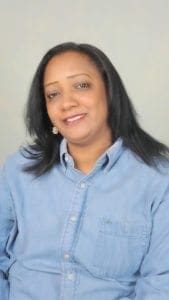
2014 – Dr. Magda Adly and Dr. Suzan Fayad, Egypt
Dr. Magda Adly’s activism began in the 1970s, and she was imprisoned during the Sadat regime in 1977 and 1978, accused of “changing the regime by force.” In 1993 she co-founded (with co-winner Dr. Suzan Fayad and others) El Nadim Center for Rehabilitation of Victims of Violence, the only specialist clinic in Egypt that is dedicated to treating victims of torture and trauma. As a result of her work, Dr. Adly has faced numerous threats to her safety and was attacked in 2008 while waiting to attend an appeal hearing against the pre-trial detention of three torture victims. In February, 2017, the Egyptian government closed the Center after repeated threats and continued crackdown on civil society, and she and other center works now have filed a lawsuit against the closure.
Dr. Suzan Fayad became active in women’s and human rights as a college student in the 1970s. She co-founded (with co-winner Dr. Magda Adly and others) El Nadim Center for Rehabilitation of Victims of Violence in 1993. She specializes in rehabilitation of victims of violence and torture. Initially, the center was founded to give dignity and protection to torture victims and domestic violence but its mission has evolved to include legal action and political activism on behalf of victims of gender and political violence. Since February, 2017, the Egyptian government closed the Center after repeated threats and continued crackdown on civil society, and she and other center works now have filed a lawsuit against the closure.
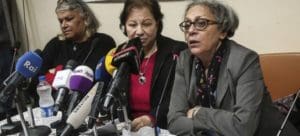
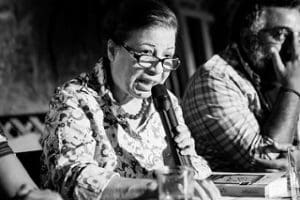
2012 – Jenni Williams, Zimbabwe
Activist Jenni Williams is a founder of the social justice movement Women of Zimbabwe Arise (WOZA). WOZA encourages women and men to speak out about issues they may be too fearful to raise alone, including domestic violence and rape. In nearly a decade of struggle and hundreds of protests, more than 3,000 WOZA supporters have spent time in police custody. Ms. Williams has been beaten, imprisoned without food or medical supplies, and threatened with execution. Ms. Williams has said the WOZA slogan, “Tough Love,” reflects her conviction that “the power of love can conquer the love of power.” As of 2016, she had been arrested 65 times but continues to work for the rights of Zimbabweans.
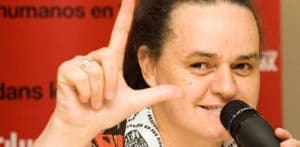
2010 – Rebecca Masika Katsuva, Democratic Republic of Congo
Rebecca and her daughters were raped, and her husband killed, by combatants in Congo’s long-running civil war in 1998. The following year, Katsuva began a “listening house” for women like her in her home in an isolated, conflict-ridden region of South Kivu, far from urban medical aid and legal protections. She began taking women and children into her home to rebuild their lives. In 2002, she renamed her organization the Association des Personnes Desherites Unies pour le Development (APDUD). Ms. Katsuva very suddenly died in 2016 from high blood pressure and malaria, but the Association continues to help women, finding them medical care and sheltering them in nearly 50 houses built by the Association, which is supported by a communal farm.
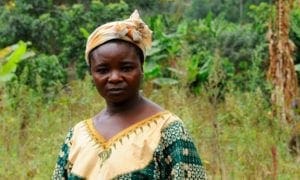
2009 – Yolanda Becerra Vega, Colombia
For nearly 40 years, Yolanda Becerra Vega has courageously fought to help women in Colombia resist political marginalization and raise their voices against the country’s long-running conflict. As National Director of the 3,500-member Popular Women’s Organization (Organización Femenina Popular), she has endured physical attacks and constant threats and intimidation by armed groups. Through marches rallies and street theatre, Ms. Vega has campaigned against violence and impunity. Her organization also offers women economic assistance, training, education, health services and legal aid for victims of human rights violations.
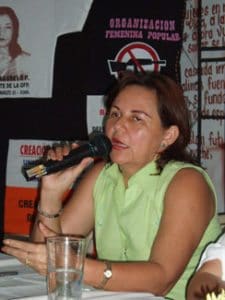
2008 – Betty Makoni, Zimbabwe
Since 1999, Betty Makoni has been building the Girl Child Network (GCN), a loose network of organization that trains girls to succeed in school, thrive in the home and society, and resist sexual abuse and rape – or, if they have been victimized, to survive with pride. The Network now serves over 30,000 girls in 45 districts across Zimbabwe. Ms. Makoni’s work has won supporters in Zimbabwe and internationally, including the 2007 World Children’s Prize for the Rights of the Child. Nevertheless, Ms. Makoni repeatedly has been threatened, arrested, and imprisoned. Yet, despite government threats and violence, she persists to in her activism for women and girls.
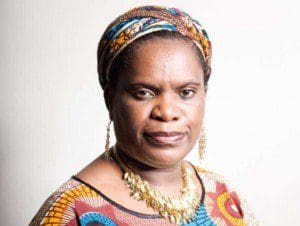
2007 – Lydia Cacho Ribeiro, Mexico
Lydia Cacho Ribeiro, investigative journalist, is one of Mexico’s leading defenders of children’s and women’s rights. She founded and directs the Centro Integral de Atención a las Mujeres (CIAM) in Cancún, a crisis center and shelter for victims of sex crimes, gender-based violence, and trafficking. Her 2004 book, Los Demonios del Eden (The Demons of Eden) created a nation-wide scandal by exposing a high-level pedophilia ring. Because of her work, Ms. Cacho has received numerous death threats and was raped in an attempt to intimidate her. In response to an invalid arrest and corruption, Ms. Cacho became the first woman in Mexico to file a federal suit against a Governor, a District Attorney, and a judge. She is also the first woman in Mexican history to take a woman’s rights case to the Mexican Supreme Court.
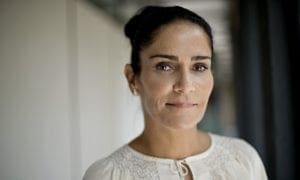
2006 – Ljiljana Raicevic, Serbia and Montenegro
Lilijana Raicevic was one of the first human rights defenders in her country to raise the issue of human trafficking and its consequences on women’s human rights. In 1999, she founded the Women’s Safe House, the first shelter for women in Montenegro. The shelter serves as the focal point of service delivery and advocacy work for women who are victims of family violence and human trafficking. Recognizing the need for a better protection program for female victims, Ms. Raicevic and the Women’s Safe House successfully lobbied for the adoption of the Witness Protection Law by the Montenegrin Parliament. The Women’s Safe House continues to fight for women in Montenegro.
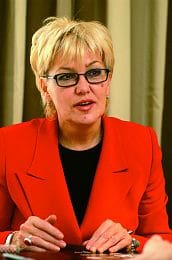
2005 – Hawa Aden Mohamed, Somalia
Hawa Aden Mohamed has devoted her life to the betterment of Somali women in a country torn apart by civil war. Ms. Mohamed is the founder of the Galkayo Education Center for Peace and Development (GECPD). The center serves over 500 women and children in many towns and villages with medical care, vocational and income-generating trainings, support for more than 50 orphans, and it is the only public school for girls in the area. Since its establishment GECPD has worked for the total elimination of Female Genital Mutilation/Cutting (FGM/C), which is widely practiced in Somalia. Ms. Mohamed continues her work as the Executive director of GECPD.
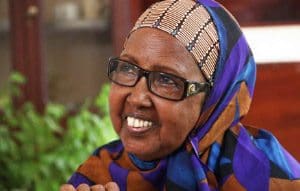
2004 – Nebahat Akkoc, Turkey
A Kurdish teacher from Diyarbakir in Eastern Turkey, Ms. Akkoc responded to her own experience of political and sexual abuse, including the murder of her husband and her arrest and torture, by founding the organization Ka-Mer (Women’s Center) to advance women’s rights in southeast Anatolia, Turkey. Today there are branches of Ka-Mer in five other Anatolian cities providing legal and psychological counseling for abused women. Ka-Mer offers a crisis line help, direct assistance, and intervention for women and family members impacted by so-called “honor killings.”
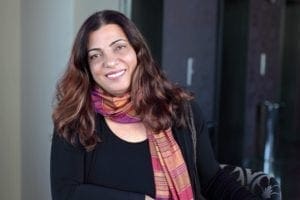
2003 – Sonia Pierre, Dominican Republic
As Executive Director of Movimiento de Mujeres de Dominico-Hatianas, (MUDHA), Sonia Pierre works to promote greater awareness of the deep-rooted challenges facing women and children of Haitian descent in the Dominican Republic. MUDHA challenges both gender discrimination and racism in the Dominican Republic by empowering women, providing access to basic social services, and challenging racist laws and practices that maintain people of Haitian descent in conditions of poverty. Ms. Pierre very suddenly died in 2011 from a heart attack, but MUDHA continues to help women and children in the Dominican Republic fight racism and discrimination.
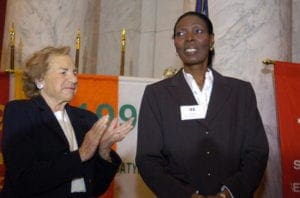
2002 – Jeannine Mukanirwa, Democratic Republic of Congo / Canada
Jeannine Mukanirwa worked for the Promotion et Appui aux Initiatives Feminines (PAIF), a women’s human rights organization in Goma to inform women of their rights and provide concrete assistance through self-funded community-based projects. As one of the few voices in eastern Congo willing to speak out against rape and other highly sensitive issues by directly confronting military and civilian authorities, Ms. Mukanirwa was threatened with death and arrested many times. In 2001 she fled to Canada, where she continues to work on behalf of PAIF.
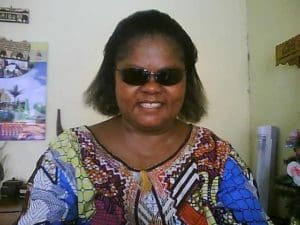
2000 – Helen Akongo, Uganda
Former child soldiers, children who have been seized, tortured, and forced at gunpoint to become rebels in the Lord’s Resistance Army (LRA) in northern Uganda, have become the life’s work of Helen Akongo, who worked with GUSCO, the Gulu Support the Children Organization. Ms. Akongo’s special concern is the support – physically, emotionally and spiritually – of the girls who have escaped and come to GUSCO from the bush, especially those who are pregnant or with children.

2000 – Giulia Tamayo Leon, Peru / Spain
Since 1997, Giulia Tamayo Leon, a prominent women’s rights activist and human rights lawyer from Lima, Peru, has documented human rights abuses against low-income women in both rural and urban communities. While campaigning against cases of forced sterilization of women in Peru, Ms. Tamayo and her family received death threats. Now living in exile in Spain, Ms. Tamayo works for the Madrid office of Amnesty International.
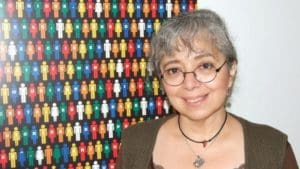
2000 – Hina Jilani, Pakistan
In 1981, Hina Jilani co-founded the first all-female law firm in Pakistan and later established a women’s legal aid program for Pakistani women, including those seeking to divorce abusive husbands. As a result, Ms. Jilani has been the target of violent attacks, including the “honor killing” of a client in her office. In recognition of her work, she has been appointed the Special Representative of the UN Secretary-General on the situation of human rights defenders. In 2013, she joined “The Elders,” a group of statespeople, peace builders, and human rights activists brought together by Nelson Mandela.
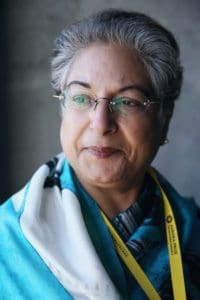
1999 – Sima Wali, Afghanistan / USA
Sima Wali, President of Refugee Women in Development, Inc., has been advocating for Afghan women and men for over 20 years, when she narrowly escaped from Afghanistan to resettle in Washington, DC. Since the fall of the Taliban, Ms. Wali has returned periodically to Afghanistan to carry out needs assessments and lead capacity-building trainings for local nonprofits. In 2009, Ms. Wali co-authored Invisible History: Afghanistan’s Untold Story and was the subject of the documentary The Woman in Exile Returns: The Sima Wali Story.
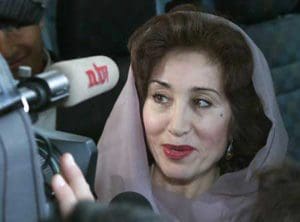
1999 – Adriana Portillo-Bartow, El Salvador / Guatemala / USA
Adriana Portillo-Bartow has paid dearly for her political commitment, first when she was forced to flee from El Salvador to Guatemala and then when her father, stepmother, sister, sister-in-law, and two daughters, then aged nine and eleven, “disappeared” in 1981. Fleeing to the USA in 1985, Ms. Portillo-Bartow founded the “Where Are the Children?” project which pursues the truth about the disappeared children of Guatemala.
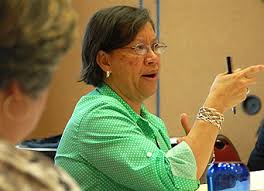
1998 – Beatrice Mukansinga, Rwanda
Beatrice Mukansinga founded MBWIRANDUMVA (“Speak, I am Listening”) to aid women disabled, traumatized, and left without homes or families following the genocide that killed thousands in Rwanda. MBWIRANDUMVA provides counseling, medical assistance, shelter, food, and skills to help women heal emotionally and physically and become economically self-sufficient.
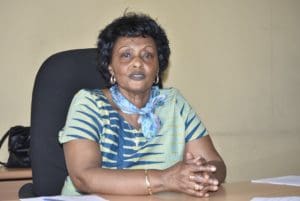
1997 – Mangala Sharma, Bhutan / Nepal / USA
Mangala Sharma works to assist the thousands of refugee Bhutanese women who had been raped, tortured, and shunned by their families. Ms. Sharma created Bhutanese Refugees Aiding Victims of Violence (BRAVVE), which now provides counseling and training in income-producing skills in all eight Bhutanes refugee camps in Nepal. In 2001 Ms. Sharma was granted political asylum in the United States, where she works with refugee families.
